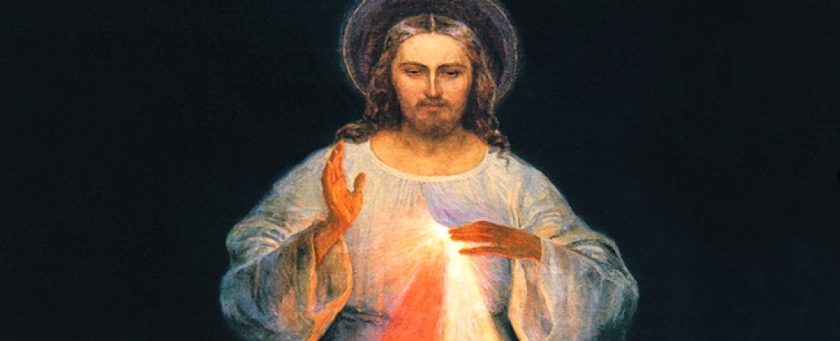Jesus is the Merciful Face of God
Second Sunday of Easter (Divine Mercy Sunday), Year C

Readings:
Acts 5:12-16; Ps. 118; Rev. 1:9-11a, 12-13, 17-19; Jn. 20:19-31
(Audio recorded live, 24 April 2022)
Today, on this Divine Mercy Sunday, we continue to focus on the events of our Blessed Lord’s Resurrection and the continuation of the Jesus movement throughout Jerusalem. In the Acts of the Apostles, we can see how people were all gathering around Peter and the other apostles. Luke tells us that people placed the sick into the streets so that at least Peter’s shadow might fall on them. Indeed, many signs and wonders were done among the people at the hands of the apostles. Those who were sick or disturbed by unclean spirits were all cured of their afflictions. And great numbers of men and women were added to them. In other words, the Church was beginning to take root and grow. This is what happens when the stone which the builders rejected has become the cornerstone. The message of salvation was being spread by the apostles, and their kerygma, or first preaching of the Good News, was turning people away from sin and leading them to the everlasting love of God.
The vision of John in the Book of Revelation is another image of the Resurrected Jesus. The one who looked like a son of man spoke to him saying, “I am the first and the last, the one who lives. Once I was dead, but now I am alive forever and ever.” Jesus is the Son of Man, the great judge who will judge us according to our deeds—those who have done evil deeds to eternal condemnation and those who have done good deeds to eternal blessedness in heaven. Jesus holds the keys to death and the netherworld, but we determine where he sends us, by our actions. So, may our actions be holy and filled with love so that we may give him little reason to condemn us. We do well to exercise humility at all times. A humble, contrite heart God will not spurn.
When Jesus appears in the upper room, he breathes the Holy Spirit on his disciples saying, “Receive the Holy Spirit. Whose sins you forgive are forgiven them, and whose sins you retain are retained.” This, along with the command he gives Peter, “Whatever you bind on earth will be bound in heaven, and whatever you loose on earth will be loosed in heaven,” is the institution of the Sacrament of Reconciliation (Matt. 16:19b). Jesus entrusted his apostles with the priesthood, the Eucharist, and the forgiveness of sins. Now, only God can forgive sins, but during the Rite of Penance, the priest is the Lord’s instrument—his ears to listen attentively, and his mouth to speak his words of mercy. And among those words is the prayer of absolution, whereby we hear him say, “By the ministry of the Church, may God give you pardon and peace. And I absolve you from your sins, in the name of the Father, and of the Son, and of the Holy Spirit.” The same Holy Spirit that was breathed upon the apostles remains active in the forgiveness of sins. This is a sign of Divine Mercy in action.
How often do we seek God’s mercy? How often do we ask for his love? We know that God loves us no matter what, but have we been tempted to take God’s love for granted? You know how good it feels to hear your child or spouse or relative say, “I love you.” Do we realize how important we are to God? Think about it. God so loved the world that he gave his only begotten Son so that all who believe in him might not perish, but might have eternal life. How can we ever repay God for what he has done for us? Short answer: We don’t have to. Jesus already paid the price for our sins, we need only to receive God’s mercy with an open heart and follow Jesus. If today you hear his voice, harden not your heart.
And so, on this Divine Mercy Sunday, as we contemplate the great mystery of our redemption in the Blood of Christ, perhaps we might spend a little extra time thanking God for the gift of his Son and we might ask him to teach us to be holy as our heavenly Father is holy. We, too, receive the Holy Spirit. We received Him when we were baptized, when we celebrate the Sacrament of Penance, when we were confirmed, but most especially in the Eucharist, when he comes to fill us with his very Being. As the Father has sent me, so I send you. Receive the Holy Spirit. Let us spread, by our own words and deeds, the mercy of God. And may the communion we share, be a foretaste of the heavenly banquet.





Share this post
Twitter
Facebook
Pinterest
Email